#link goes to wikipedia!
Text

royal college trio 🍂🍁
#persona 5#goro akechi#akira kurusu#sumire yoshizawa#firstly. I would like to apologize if I got any of the writing wrong but I’m. trusting Wikipedia#I forgot how much I missed them until I started drawing this#just to point it out#Akechi goes to ritsumeikan; Akira goes to Doshisha; and Sumire goes to Kyoto U#my reasoning is in a previous college shuake post#but to recap… rits and dodai have a rivalry…. Kyoto U is just kind of neutral so .. that’s how it works w then#I wanted to make the caption a quote I saw in my college’s chapel bc it’s what inspired this piece but#there’s no one to credit afaik except doshisha as an institution as a whole??#it doesn’t link back to my institution. technically#but iykyk#and if you know don’t say anything#rare occasion where I don’t use any filters lol#just really liked my shading and everything here so#OH OH before I go pls look closely at their phones for little details :)#realized u can’t see sumi’s that well but it’s a clear case with a Sylveon card in it#also idk what she’s showing Akira might be like. a new mini pc Futaba’s working on who knows
184 notes
·
View notes
Text
So no one was gonna tell me that Bruce Abbott is an architect now?? This man has literally designed homes, no one was gonna mention that? Y’all sleeping on how talented he really is I guess
#according to his Wikipedia page he’s semi retired from acting#I wonder if he still goes to cons I know I’ve seen pics of him at cons but idk how recent that was#my guy is a good actor and an artist damn#also I think everyone should know when I looked him up the social media links included one to a Twitter that’s definitely not him#reanimator#bride of re animator#bruce abbott
31 notes
·
View notes
Text
i love when groups of certain animals have fun old names like... a group of crows is called a murder! a group of octopus is called a consortium! a group of rats is called a mischief! a group of ferrets is called a business! a group of ladybugs is called a loveliness! a group of spoonbills is called a bowl (hilarious)! perfection
#link goes to the wikipedia page for this#names of animals and what a group is called#in english to be clear lol#it's just hilarious to me lmao#love it#obviously these are generally archaic names#but i think we should make them standard again XD
9 notes
·
View notes
Text
Btw testament’s japanese wikipedia page has hyperlinks to the wikipedia pages for “self-sacrifice” and “inferiority complex”. Which is awesome i think
#was trying to find their hobby list in jp. its too long they didnt include it on wikipedia.#found it its fine. it doesnt make their liquor hobby any less confusing though#also their page says Transgender but theres no hyperlink unfortunately. i wouldve liked that#theres links for brainwashing space and rhinoceros though. and the colors gray and purple? just in case i guess.#the kat goes meow
16 notes
·
View notes
Text
There is actually for real a movie that is the inverse of the not real movie Goncharov, a slapstick comedy film released in 1974 in which Italian treasure hunters go to Russia to try to find a bunch of money
Which I think makes the not real nature of Goncharov even funnier
36 notes
·
View notes
Text

Essex being struck by a whale on November 20, 1820 (sketched by Thomas Nickerson)
#The Essex#whaleship Essex#Essexposting#I have been trying to find a post of the sketch and I could not#so I figured why not post it myself#link just goes to the wikipedia article I got the pic from#sketch is in public domain but photo source is always good to have#we are nearing the end of the Essexposting I swear
4 notes
·
View notes
Note
WHAT IS A GLORY HOLE I'M SCARED
.
1 note
·
View note
Text
— for: @varuhlv , | ❝ ...I DON'T LIKE SEARCHING FOR NEW HELP, YOU KNOW. ❞ a truth and a lie, said by the same red, red mouth. tonight she plays the role of an unyielding businesswoman, arms crossed against her chest and chin held high; the middle of her shop floor ( freshly polished, she'll tell him... ) is a momentary stage as honest, honest performance is spilled out in syllables. she does not like finding new help, and yet the unwanted must be done. her mouth sets itself into a frown and she turns her tongue into sandpaper. no good words will be spoken, not yet. ❝ Sampson, my usual sniffer around here... we had a falling out, ❞ the admittance comes with precise pity, and the Saint ( ! ) works her way around her glass counter, drags nails against surface space. ❝ he tickled me funny, after a while. made my gophers feel strange in their skin, plus there was nothing strange about him. human, you see. anyways.. ❞ against the back of her mind, a vision of a throat concave and torn, epiglottis between teeth.
SHE GLANCES TOWARDS HER GUEST, brown gaze going from floor to face, eyes wide with tragedy. straight to business. ❝ he was quite good at making sure there was no trouble around here, [ MY STORE, SHE MEANS. MY STORE, MY STORE, MY – ] and so i expect you to be the same. i'll pay you of course... i even put a chair in here, just for you. ❞ tragedy removed, her voice shifts to a more formal register; a finger is lifted towards a corner of the store ( private, with the entire floor seen ) where a small, padded chair sits. But, she continues, you're free to stand if you'd like.
the vampiristic woman watches him, allows a moment to pass into two.
❝ i heard you've got sharp teeth. that makes two of us. ❞
#varuhlv#arc 01 * : death does not exist down here. ( 𝒑𝒂𝒓𝒕 𝒐𝒏𝒆 ‚ )#seraphina showing ruben the chair she put inside her shop for him: see? don't you love it?#the link on 'epiglottis' goes to the wikipedia page for what that is; it's just throat anatomy (bc she killed her former#sniffer [that's what she's gna call him])#'that makes two of us' a very thickly veiled threat! referencing to his wolf and also her vampirism#basically promising to ''fire'' him if he doesn't do well#wait i need to message you rn.
4 notes
·
View notes
Note
BTS are real activists, you just don't consider them real activists because they're very attractive. being ugly isn't a requirement to be an activist, you know :) anyway reduce reuse recycle
They are real performative activists yes, but not real activists. To be a real activist, you do not only engage in activism whether it be campaigning, protesting, participating in initiatives, spreading knowledge and education, fighting for policy, legal reforms, volunteering with communities, donating etc. but you also must have an in-depth knowledge of the historical, political, social and economic background and implications of the cause you are fighting for. BTS clearly lacks this (along with some of the other ones I mentioned). They donate money and say a few flowery words to seem like they support certain causes but have zero comprehension or in-depth knowledge of what they are saying and donating to. Notable example is their donation to BLM and then promoting the NYPD’s police robot dog right after (the robot dog meant to increase police brutality against Black and Brown people in New York). Surface-level activism and zero critical thinking of how their choices contradict what they promoted in the past.
When we speak of real activists, we speak of people that genuinely care deeply and are passionate and educated about the causes they fight for, even have their livelihoods on the line and have their lives dependent on! An example is Mohammed and Muna El-Kurd, who live in Eastern Jerusalem and use their platforms to share and spread knowledge of the illegal occupation of Palestine by Israel. Both twins have been illegally detained by the IOF, their lives in danger due to their outspoken activism. Another example is Mahbouba Seraj, a journalist and women’s rights activist from Afghanistan. She runs a women’s shelter in Kabul where Afghan women can take refuge as well as several nonprofit organizations. When given the choice to leave Afghanistan as the Taliban took over, Mahbouba chose to stay in Kabul to continue helping women fight for their rights. She has stated that she knows she is on the Taliban’s radar and yet still has chosen to continue helping women despite the danger she’s in. Another example is that of the three Black Lives Matter founders, Patrisse Cullors, Alicia Garza and Opal Tometi. BLM was officially founded in 2013 by Patrisse, Alicia and Opal in the aftermath of the murder of Trayvon Martin, addressing systemic and institutional antiblack racism and police brutality, bringing attention to the unlawful murders of Black people (by the police and others) as well as advocating for prison abolition, housing, community initiatives etc. BLM activists have been arrested, detained, injured and even killed for their work, targeted by authorities for fighting for their rights in a white supremacist society.
Activists deserve our utmost support and respect for the work they do, especially when in the face of danger from higher authorities with a lot of power. BTS doesn’t come close to the people I have just listed (nor do they need to as they aren’t activists and shouldn’t be crusaded as such) who put their everything on the line to fight for their causes and future generations ahead. To say they are activists is a true insult to those that actually are. They are performative at best and lack an actual backbone and the required knowledge to enact true change. They are non-threatening in all matters political and never defy power structures (which is the whole point of being an activist). Going to the White House to speak about racism against Asian diaspora... whilst not being of asian diaspora, not having lived our experiences and not having that in-depth knowledge Asian American activists do is... questionable. What exactly can they discuss or really bring to the table regarding hate crimes against Asian ppl in a country they don’t live in??
I’m aware that ARMYs love to flex BTS as activists to add to their “bragging rights” of how “legendary” and “iconic” their fave group is but if you actually genuinely care for and respect activists and the causes they fight for, you would not consider BTS as activists. It’s very disrespectful and insulting to compare a few singing, dancing dudes that fling money sometimes and barely do anything significant for the causes they claim they support to people risking their lives for justice and human rights. All because they are ur faves doesn’t mean you have to worship everything they do. You can acknowledge when they make mistakes or do something hurtful or, in this case, when their activism is performative.
Also your implication that all activists are ugly is very... strange to say the least. To you, maybe. But not me, I never said that 🙅🏽♀️. Activism has nothing to do with fitting into conventional physical beauty standards but uh... you do you I guess!
#feel free to check out the activists I mentioned I provided links to their Wikipedia pages!#BTS being good looking and getting all of this credit for their performative activism... sounds like pretty privilege if anything#before anyone comments something weird PLEASE READ THRU THIS ENTIRELY#someone was acting funky in the replies... I don’t have energy for that so there goes the block lol!#they started off with “cute ... I’m not gonna be patronized by someone on behalf of BTS LOL#bottom line: they aren’t activists#nice and good ppl yes but not activists#u do have to meet certain requirements to consider yourself one#not being an activist doesn’t mean you are a terrible person lol#bee tee ess
18 notes
·
View notes
Text



Sometimes anon mail just sits there for months because I have no clue how to respond to it.
7 notes
·
View notes
Text
hey i got bad news if a wikipedia article tries to link to a nonexistent wikipedia article about you. turns out you're transphobic. yeah. sorry
#(ok watch out i'm about to explain the joke.#the joke is that when a wikipedia article tries to link to another article that doesn’t exist the link is red#and similarly if you download the shinigami eyes extention it turns a link red if the place it goes to is marked transphobic#the comedy comes from the idea that i have mistakenly come to the conclusion that all red links are transphobic#when in reality the link may be red for a different reason such as a wikipedia article that doesn't exist#the comedy is potentially heightened if you know that shinigami eyes will also put a red box around transphobic links in wikipedia articles#meaning that this fictitious version of me has made an even greater error)#me original
0 notes
Text
My clinical psych prof is 84, has a Wikipedia page, clearly does not know how to use Canvas, and posts assignments under helpfully named links such as “syl.l.(f23).doc”
I think this will be a good semester.
#in the about me tab he clearly copy and pasted his Wikipedia page#the formatting on the class page is so confusing. multiple docs in comic sans#one link goes to a website with no formatting just a bunch of files. clicked on one called dead.letter out of curiosity#it downloaded a filed called DEAD and when i found an application that could open it it was an email to a guy from Harvard???#just like ‘sorry i can’t meet at that time’ normal kinda message to a harvard edu email. what kinda power play???
1 note
·
View note
Text
How lock-in hurts design

Berliners: Otherland has added a second date (Jan 28) for my book-talk after the first one sold out - book now!

If you've ever read about design, you've probably encountered the idea of "paving the desire path." A "desire path" is an erosion path created by people departing from the official walkway and taking their own route. The story goes that smart campus planners don't fight the desire paths laid down by students; they pave them, formalizing the route that their constituents have voted for with their feet.
Desire paths aren't always great (Wikipedia notes that "desire paths sometimes cut through sensitive habitats and exclusion zones, threatening wildlife and park security"), but in the context of design, a desire path is a way that users communicate with designers, creating a feedback loop between those two groups. The designers make a product, the users use it in ways that surprise the designer, and the designer integrates all that into a new revision of the product.
This method is widely heralded as a means of "co-innovating" between users and companies. Designers who practice the method are lauded for their humility, their willingness to learn from their users. Tech history is strewn with examples of successful paved desire-paths.
Take John Deere. While today the company is notorious for its war on its customers (via its opposition to right to repair), Deere was once a leader in co-innovation, dispatching roving field engineers to visit farms and learn how farmers had modified their tractors. The best of these modifications would then be worked into the next round of tractor designs, in a virtuous cycle:
https://securityledger.com/2019/03/opinion-my-grandfathers-john-deere-would-support-our-right-to-repair/
But this pattern is even more pronounced in the digital world, because it's much easier to update a digital service than it is to update all the tractors in the field, especially if that service is cloud-based, meaning you can modify the back-end everyone is instantly updated. The most celebrated example of this co-creation is Twitter, whose users created a host of its core features.
Retweets, for example, were a user creation. Users who saw something they liked on the service would type "RT" and paste the text and the link into a new tweet composition window. Same for quote-tweets: users copied the URL for a tweet and pasted it in below their own commentary. Twitter designers observed this user innovation and formalized it, turning it into part of Twitter's core feature-set.
Companies are obsessed with discovering digital desire paths. They pay fortunes for analytics software to produce maps of how their users interact with their services, run focus groups, even embed sneaky screen-recording software into their web-pages:
https://www.wired.com/story/the-dark-side-of-replay-sessions-that-record-your-every-move-online/
This relentless surveillance of users is pursued in the name of making things better for them: let us spy on you and we'll figure out where your pain-points and friction are coming from, and remove those. We all win!
But this impulse is a world apart from the humility and respect implied by co-innovation. The constant, nonconsensual observation of users has more to do with controlling users than learning from them.
That is, after all, the ethos of modern technology: the more control a company can exert over its users ,the more value it can transfer from those users to its shareholders. That's the key to enshittification, the ubiquitous platform decay that has degraded virtually all the technology we use, making it worse every day:
https://pluralistic.net/2023/02/19/twiddler/
When you are seeking to control users, the desire paths they create are all too frequently a means to wrestling control back from you. Take advertising: every time a service makes its ads more obnoxious and invasive, it creates an incentive for its users to search for "how do I install an ad-blocker":
https://www.eff.org/deeplinks/2019/07/adblocking-how-about-nah
More than half of all web-users have installed ad-blockers. It's the largest consumer boycott in human history:
https://doc.searls.com/2023/11/11/how-is-the-worlds-biggest-boycott-doing/
But zero app users have installed ad-blockers, because reverse-engineering an app requires that you bypass its encryption, triggering liability under Section 1201 of the Digital Millennium Copyright Act. This law provides for a $500,000 fine and a 5-year prison sentence for "circumvention" of access controls:
https://pluralistic.net/2024/01/12/youre-holding-it-wrong/#if-dishwashers-were-iphones
Beyond that, modifying an app creates liability under copyright, trademark, patent, trade secrets, noncompete, nondisclosure and so on. It's what Jay Freeman calls "felony contempt of business model":
https://locusmag.com/2020/09/cory-doctorow-ip/
This is why services are so horny to drive you to install their app rather using their websites: they are trying to get you to do something that, given your druthers, you would prefer not to do. They want to force you to exit through the gift shop, you want to carve a desire path straight to the parking lot. Apps let them mobilize the law to literally criminalize those desire paths.
An app is just a web-page wrapped in enough IP to make it a felony to block ads in it (or do anything else that wrestles value back from a company). Apps are web-pages where everything not forbidden is mandatory.
Seen in this light, an app is a way to wage war on desire paths, to abandon the cooperative model for co-innovation in favor of the adversarial model of user control and extraction.
Corporate apologists like to claim that the proliferation of apps proves that users like them. Neoliberal economists love the idea that business as usual represents a "revealed preference." This is an intellectually unserious tautology: "you do this, so you must like it":
https://boingboing.net/2024/01/22/hp-ceo-says-customers-are-a-bad-investment-unless-they-can-be-made-to-buy-companys-drm-ink-cartridges.html
Calling an action where no alternatives are permissible a "preference" or a "choice" is a cheap trick – especially when considered against the "preferences" that reveal themselves when a real choice is possible. Take commercial surveillance: when Apple gave Ios users a choice about being spied on – a one-click opt of of app-based surveillance – 96% of users choice no spying:
https://arstechnica.com/gadgets/2021/05/96-of-us-users-opt-out-of-app-tracking-in-ios-14-5-analytics-find/
But then Apple started spying on those very same users that had opted out of spying by Facebook and other Apple competitors:
https://pluralistic.net/2022/11/14/luxury-surveillance/#liar-liar
Neoclassical economists aren't just obsessed with revealed preferences – they also love to bandy about the idea of "moral hazard": economic arrangements that tempt people to be dishonest. This is typically applied to the public ("consumers" in the contemptuous parlance of econospeak). But apps are pure moral hazard – for corporations. The ability to prohibit desire paths – and literally imprison rivals who help your users thwart those prohibitions – is too tempting for companies to resist.
The fact that the majority of web users block ads reveals a strong preference for not being spied on ("users just want relevant ads" is such an obvious lie that doesn't merit any serious discussion):
https://www.iccl.ie/news/82-of-the-irish-public-wants-big-techs-toxic-algorithms-switched-off/
Giant companies attained their scale by learning from their users, not by thwarting them. The person using technology always knows something about what they need to do and how they want to do it that the designers can never anticipate. This is especially true of people who are unlike those designers – people who live on the other side of the world, or the other side of the economic divide, or whose bodies don't work the way that the designers' bodies do:
https://pluralistic.net/2022/10/20/benevolent-dictators/#felony-contempt-of-business-model
Apps – and other technologies that are locked down so their users can be locked in – are the height of technological arrogance. They embody a belief that users are to be told, not heard. If a user wants to do something that the designer didn't anticipate, that's the user's fault:
https://www.wired.com/2010/06/iphone-4-holding-it-wrong/
Corporate enthusiasm for prohibiting you from reconfiguring the tools you use to suit your needs is a declaration of the end of history. "Sure," John Deere execs say, "we once learned from farmers by observing how they modified their tractors. But today's farmers are so much stupider and we are so much smarter that we have nothing to learn from them anymore."
Spying on your users to control them is a poor substitute asking your users their permission to learn from them. Without technological self-determination, preferences can't be revealed. Without the right to seize the means of computation, the desire paths never emerge, leaving designers in the dark about what users really want.
Our policymakers swear loyalty to "innovation" but when corporations ask for the right to decide who can innovate and how, they fall all over themselves to create laws that let companies punish users for the crime of contempt of business-model.
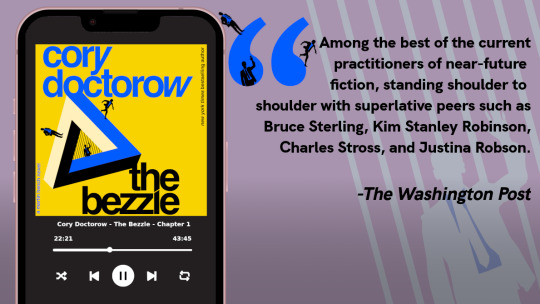
I'm Kickstarting the audiobook for The Bezzle, the sequel to Red Team Blues, narrated by @wilwheaton! You can pre-order the audiobook and ebook, DRM free, as well as the hardcover, signed or unsigned. There's also bundles with Red Team Blues in ebook, audio or paperback.

If you'd like an essay-formatted version of this post to read or share, here's a link to it on pluralistic.net, my surveillance-free, ad-free, tracker-free blog:
https://pluralistic.net/2024/01/24/everything-not-mandatory/#is-prohibited

Image:
Belem (modified)
https://commons.wikimedia.org/wiki/File:Desire_path_%2819811581366%29.jpg
CC BY 2.0
https://creativecommons.org/licenses/by/2.0/deed.en
#pluralistic#desire paths#design#drm#everything not mandatory is prohibited#apps#ip#innovation#user innovation#technological self-determination#john deere#twitter#felony contempt of business model
3K notes
·
View notes
Text
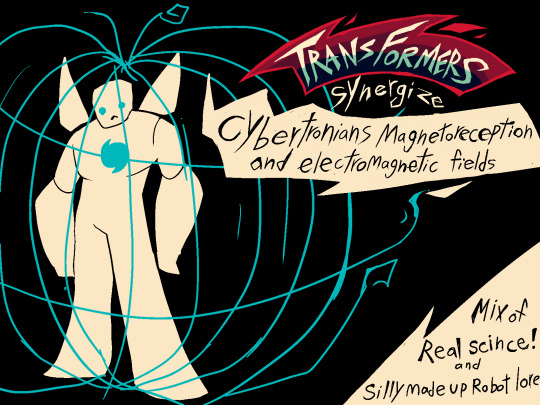
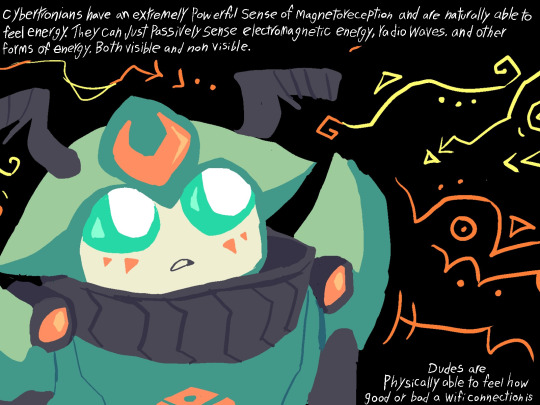

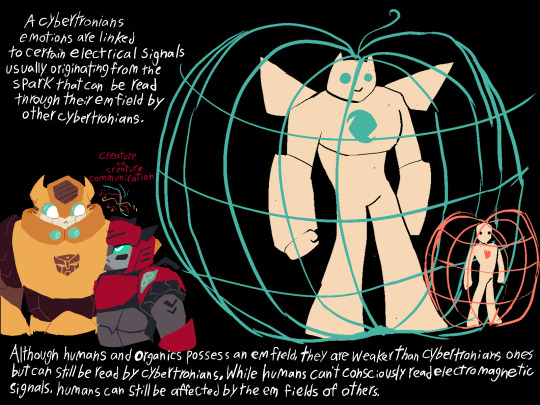
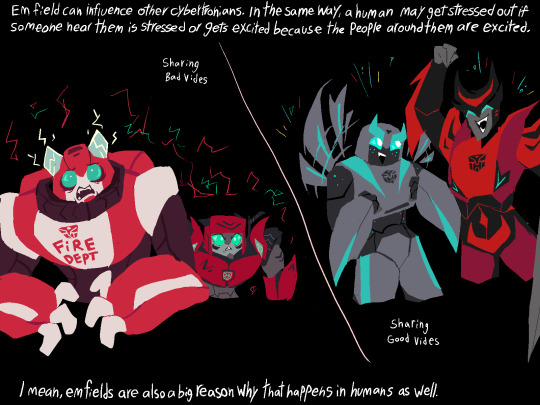
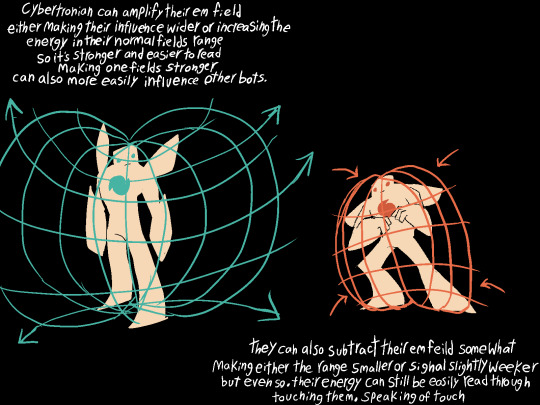
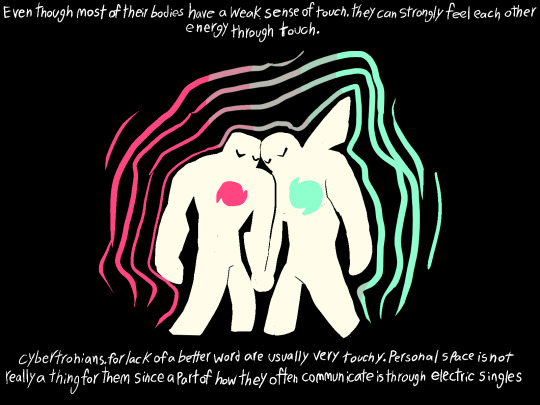
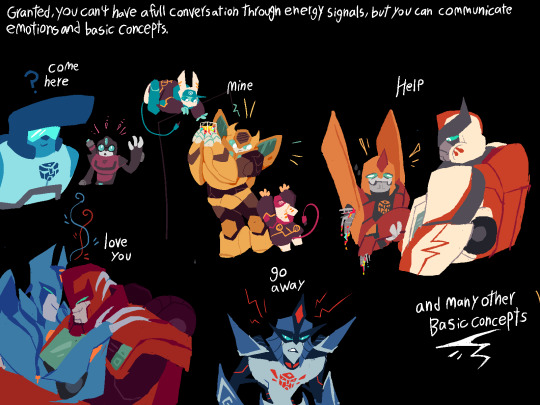
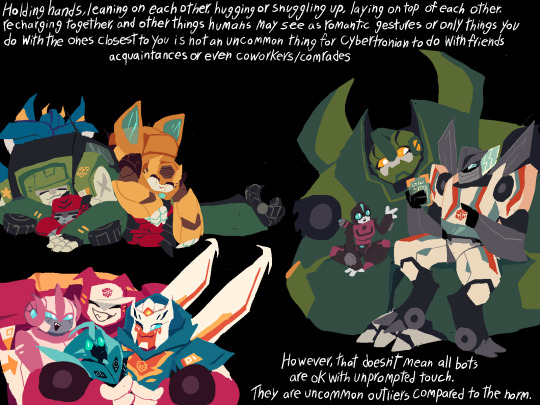
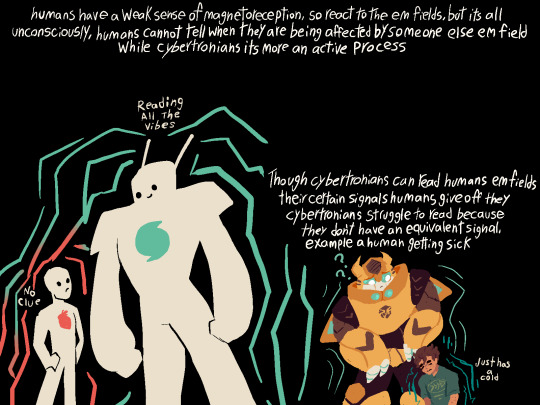
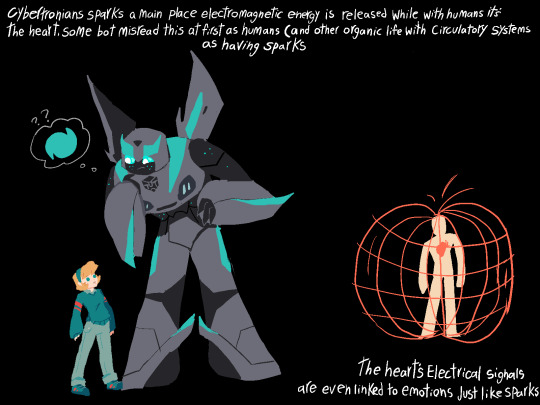
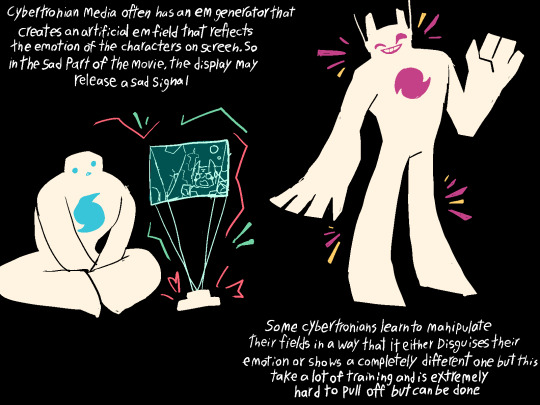
This was made for a fan community I am working on. If you would like to apply these as headcanons to your own work, go right ahead
All the human stuff is real btw, I have a source linked below that goes into much more detail on the topic.
I was planning on doing the cybertronians body language or anatomy post first but decided to go with this because the info it provides helps with the other two. its also a lot shorter than the other two so I knew I could get it done a lil faster.
Sources I used while making this lore below
Sources I used while making this lore
https://www.heartmath.org/research/science-of-the-heart/energetic-communication/■ (had to break the link because tumblr would blacklist my post just remove the cube)
Several Wikipedia Articles about em fields and magnetoreception
#transformers fan continuity#transformers#transformers synergize#tfs#lore post#bumblebee#hound#moonracer#cliffjumper#bluestreak#perceptor#spike witwicky#carly#red alert#sideswipe#powerglide#ratchet#beachcomber#chromia#ironhide#wheeljack#bulkehead#mirage#arcee#blaster#blurr#tracks#smokescrean#maccadam
1K notes
·
View notes
Text
imagine being average federation citizen doing a wikipedia dive on Amanda Grayson for like a book report or whatever and you click on “spouse” and it links you to a guy who was thee vulcan ambassador to earth for like 200 years and publicly called the klingon ambassador a murderer once and you think huh neat and click on “children” and the first person listed is described as “career criminal, activist and religious evangelist” with a rap sheet as long as your arm ending with him taking the entire government hostage in nimbus iii and then no death date he's just listed as “missing” and the second kid is a starfleet science hero you've seen on the poster of like 7 different documentaries on space netflix and you notice his year of death is listed as 2285 but “years active” goes on like 100 years past that and also he's apparently the reason earth isn't completely underwater right now? then you read his sister's article and it's all “starfleet's first mutineer” “blamed for starting the first federation-klingon war” “lauded for ending the first federation-klingon war” but is weirdly vague on what happened to her after that and the article is edit locked and her year of death has like 6 annotations attached to it
3K notes
·
View notes
Note
Do you go by it/its exclusively now? Do you want your wikipedia page to be updated?
the wikipedia article is partially edit protected because people keep trying to edit the pronouns in it without checking either the talk page, the page history or at the very least the linked references on the footnote regarding my pronouns. i have to tell people on here not to edit the pronouns in the article almost every single month and half the time someone sees me asking not to go change them as some sort of challenge and immediately goes to edit the article. please just don't.
#and to answer the first part of your question#i very much prefer it/its especially in non formal settings which is why that's the only thing it says on my social media profiles#if you were to check my website you'd see it still says it/she (which by the way isn't a mistake you need to point out to me i know myself)
784 notes
·
View notes